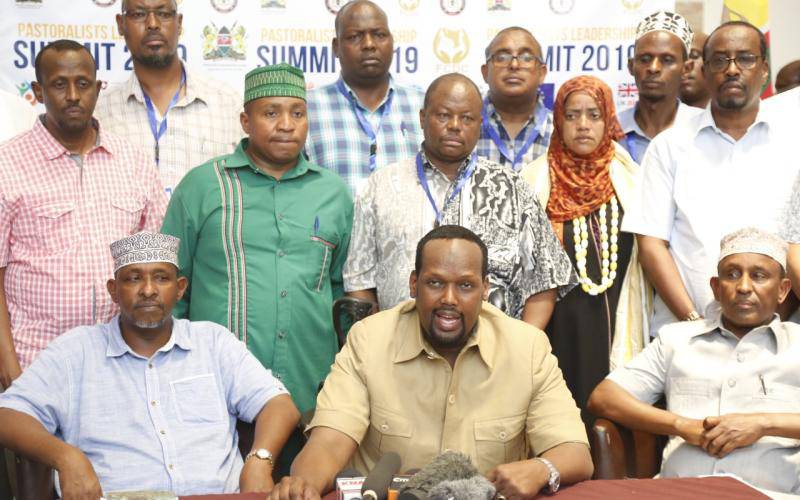×
The Standard e-Paper
Smart Minds Choose Us

Mandera Governor Ali Roba and his Garissa Counterpart Ali Korane to his left and National Assembly majority leader join MPs at a presser in Garissa. [Photo: Standard]
Governors and MPs from areas inhabited by pastoralists will declare a position on the referendum debate, the upcoming national census, and the boundaries review process.